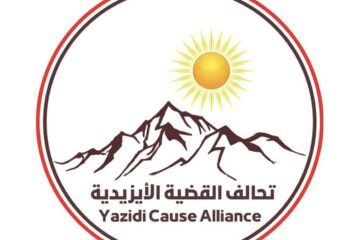New Developments in Custody Battle for Ezidi Child Between Biological Family and ISIS Widow
Over a year ago, Ezidi Times reported that Turkish authorities arrested an ISIS member, Sabah Ali Oruç, on charges of “international human trafficking” after an Ezidi girl was abducted from Iraq, trafficked through the dark web, and smuggled into Turkey. The child had been sold by ISIS in Iraq for $500 and was brought to Turkey in 2018 using a fake passport. After her rescue in February 2021, the child was placed in a state-run foster home in Ankara, under the protection of the Ministry of Family and Social Affairs. Despite this, in a controversial legal development, the Ministry later returned the guardianship of the same child to an ISIS family member—Oruç’s wife, Saibe Adnan.
Turkish media reports that a Ezidi woman from Iraq has come forward as the mother of the child and she has provided the Turkish authorities with her DNA sample which will be compared with the Ezidi girl’s. A court hearing is expected in January 2025 during which the biological connection between the Ezidi child and the Ezidi woman from Iraq will be established.
How the Ezidi Child was Brought to Turkey
The child’s abduction occurred during a broader ISIS operation targeting the Ezidi population in Iraq, where many women and children were abducted, sold, and enslaved. The child was initially trafficked via the dark web and placed for sale online. Turkish police, working in collaboration with intelligence agencies, conducted an operation in Ankara in February 2021, rescuing the (at the time 6-7-year-old) girl from an ISIS hideout.
During the operation, Oruç, along with other ISIS members including Anas V., Nasır H. R., and Sabbah Ali Oruç, was arrested. Oruç later confessed to having brought the child to Turkey, where she was sold to other ISIS members. Following his arrest, Oruç was charged with “international human trafficking” and placed in custody in Sincan F-Type Prison. Two other individuals arrested with him were released under judicial control.
Legal Proceedings in Turkey
The child remained in state care in a foster home under the protection of Turkey’s Ministry of Family and Social Affairs. However, in 2022, Oruç’s family filed a guardianship claim in an attempt to regain guardianship of the child. Their argument, presented to the Ankara 19th Family Court, was that the child was Muslim, adopted in Iraq, and had been taken into state care due to a “translation error” when Turkish authorities raided their home. The family members insisted that they had a right to custody as they were the child’s rightful guardians.
However, the court rejected this claim. It ruled that the individuals involved in the case were ISIS members and that the child had been brought to Turkey as a captive, not as an adopted or Muslim child. The court also emphasized that the child was an Ezidi, not Muslim, and had been taken as a “war prize” by ISIS. The judges dismissed the guardianship application and upheld the child’s state protection.
Controversial Decision by Turkish Authorities Caused Outrage
Despite this setback, Oruç’s family pursued another route. In March 2023, they filed a separate guardianship case with the Ankara 8th Civil Court. This time, the court ruled in favor of Saibe Adnan, Oruç’s wife, granting her legal guardianship of the child. Saibe Adnan is a widow of an ISIS governor from Iraq, and her husband’s status as an ISIS leader complicates the ethical and legal concerns surrounding the case.
The decision has been met with outrage, particularly from Ezidis and from a family in Iraq who claims to be the child’s biological relatives. This family has provided DNA samples to Turkish authorities, offering evidence that they are the child’s rightful biological family. A court hearing is scheduled for January 2025, during which a DNA comparison will take place to establish the child’s biological connection to the Iraqi woman who claims to be her mother.
The case has sparked significant debate in Turkey, with human rights groups and legal experts questioning the judiciary’s handling of the matter. One key issue raised is the lack of a legal representative appointed for the child by the Turkish Bar Association, as required by law during guardianship proceedings. The manner in which Turkish authorities have handled the case—particularly the inconsistent decisions made by courts, law enforcement, and the Ministry of Family and Social Affairs—has led to criticisms that the child’s well-being and legal rights have been neglected.
As of now, the legal battle continues, with the child’s fate uncertain. The ongoing investigation, DNA testing, and the court hearing in 2025 will ultimately determine the child’s biological identity and who should have the right to care for her. The case highlights broader concerns about the treatment of Ezidi survivors of ISIS, particularly in relation to custody disputes and the complex intersection of international law, human trafficking, and the rights of abducted children.


1 Comment
Neue Entwicklungen im Sorgerechtsstreit um das Ezidi-Kind zwischen der leiblichen Familie und der Witwe eines ISIS-Mitglieds - Ezidi Times · November 13, 2024 at 01:18
[…] über einem Jahr berichtete Ezidi Times, dass die türkischen Behörden ein Mitglied des ISIS, Sabah Ali Oruç, unter dem […]
Comments are closed.